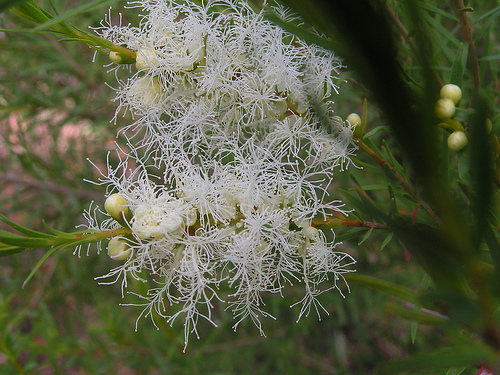
We’ve associated Tea Tree oil (Melaleuca Alternifolia) for many years with spot treatments and facial scrubs, due to its anti-bacterial properties. Well, it seems there may be a new breakthrough on the horizon as a recent study has shown this wonderful potent oil could actually be used to treat cancer….
How Tea Tree is currently used
Tea tree oil is included in varying quantities in countless high street products. Shampoos, cleansers, moisturizers and so on. The main reason for its inclusion is to give the formulation antibacterial, antifungal and antimicrobial properties.
Tea tree contains the compound terpinin-4-ol which is thought to be mainly responsible for its antimicrobial activity.
It helps to clear infection, heal the skin and prevent further outbreaks. Apart from the treatment of blemishes it is highly effective when used to treat burns, bites, and numerous other skin irritations such as athelete’s foot. Such a useful natural remedy.
You can add a little of the essential oil to your normal skincare or use it directly on burns to aid healing. Tea Tree products are readily available to buy, but it’s important to differentiate between those that just ‘contain tea tree’ and those that contain it in significant amounts , around 5%. A much lower percentage may not give much real benefit. My favorite specialist Tea Tree brand is Australian Bodycare. You will also find plenty of information about the oil on their website.
Anyway, this is old news, right? We know Tea Tree Oil is great for treating skin infections. The exciting thing is that this little oil may be key in a new treatment for cancer that is a real natural alternative to the harsh treatments that are standard practice.
How Tea Tree can Fight Cancer
In a research project carried out by the University of Western Australia it has been shown in studies on mice to inhibit the growth of tumors under the skin.
In the study the mice were treated with a tea tree oil formulation applied directly to their skin. From this topical application a significant shrinkage in the tumors present occurred and in some cases the tumors were no longer detectable. The only reported side effects were some skin irritation which cleared up in a matter of days.
There have been some in vivo studies previously, but as this study delivered the Tea Tree transdermally, it is much easier to see how it could be translated into a treatment.
This could mean the possibility of a major change in the treatment of skin cancer or a possible natural alternative treatment, what a wonderful prospect!
You can read more about the study here
Written by Louise White, founder of which1works.com. You can also find me over at my Facebook Page….
Image courtesy of Arthur Chapman on Flickr

